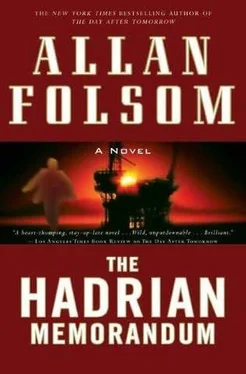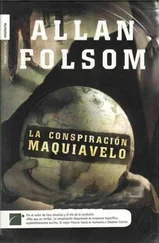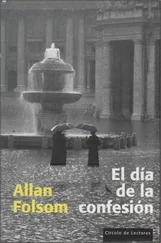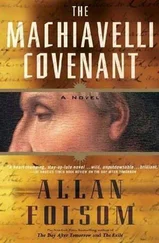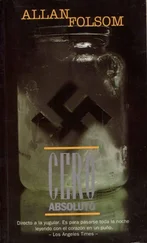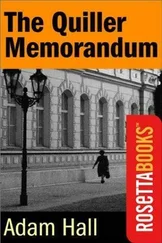“Yes.”
“Good.” He said with a smile. “I’ll tell you when.”
2:37 A.M.
LEARJET 55, IN A HOLDING PATTERN OVER THE BAY OF
BISCAY JUST OFF BILBAO, SPAIN. AIRSPEED 310 MPH.
ALTITUDE 27,200 FEET. 2:52 A.M.
Emil Franck was slouched in his seat, half dozing, thinking of his children on their own, continents away, and at the same time watching the green dot showing the Cessna’s progress on the laptop in front of him. From somewhere in the dimness of the cabin behind him he heard Kovalenko talking in Russian, presumably on his cell phone. The conversation was brief. He heard him sign off and in a moment came forward and sat down across from him.
“Moscow has just informed me that two other jet aircraft are tailing the Cessna,” he said.
“What?” Franck sat up quickly. “What aircraft? Who are the people involved?”
“One is the chairman of the Striker Oil and Energy Company. The other plane has been chartered by the head of the private security firm hired to protect Striker’s interests in Equatorial Guinea. His name is Conor White. He’s a Brit, a former col o nel in the SAS.”
“Striker is after the photographs, too.”
“So it seems.”
“If mercenaries are involved it means weapons.”
“Probably.”
“Why two planes? Why aren’t they traveling together?”
“I don’t know.”
“What is the origin of the information? How did Moscow get it?”
“I wasn’t told.”
Franck stared at him. It had been a long time since he’d had Moscow thrust into his life. He didn’t like it.
“What were you told?”
“To keep them informed of Marten’s position.”
“Which they, in turn, will pass on to some nameless entity who then forwards it to Striker and White.”
Kovalenko nodded.
Franck glanced at the slowly moving green dot that was the Cessna on his laptop, then stood and walked partway down the aisle between the seats. He stopped and turned back. “Moscow is trying to serve its own interests without ruffling someone’s feathers. So they give you this information as a way of telling us to make sure these dual problematicals don’t get the pictures before we do.”
“Yes.”
“Just how are we to accomplish that?”
“Moscow has left it to us. And I leave it to you. You are famous for your ‘creative thinking,’ Hauptkommissar. Besides, we are in Europe, not Rus sia. Things are different here.”
Franck stared at him. He hated these Moscow people.
“Well?” Kovalenko pushed him.
“We let them follow the Cessna to Málaga and see what Marten does. I guarantee you it’s not his final stop. But then you know him better than I do. What is he thinking?”
“By now it’s reasonable to assume he knows, or at least thinks, he’s being followed. That means he will find some way to get where he’s going despite that handicap. He has a rather determined personality and is quite clever at using it.”
“So?”
“I seriously doubt he would set down in Málaga. He doesn’t file a flight plan for all to see and then follow it to the letter. Unless he’s going to some place around the corner, which I also doubt, it would be too obvious. On the other hand, if he did land and was still some distance from his target-even if he had arranged for a car-ground travel would be undependable and he would be easy to follow.”
“You think he’ll stay in the air until he’s close enough to where he’s going to make ground travel expedient. A reasonably short distance. An hour’s drive or less, either as you say, in an arranged car, or in a rental.”
“Yes,” Kovalenko nodded.
“Then we assume he will divert somewhere along the way. Since these other two aircraft are relying on us for his position, it’s very unlikely they will have him in line of sight. When he changes course we only need provide them with what information we think appropriate.”
Kovalenko smiled thinly. “Give them a little but not too much. A balancing act, Hauptkommissar. For Moscow’s sake.”
“And ours.”
3:07 A.M.
CESSNA 340, JUST NORTH OF MADRID. AIRSPEED 190.
ALTITUDE, 25,600 FEET. 3:30 A.M.
Anne was asleep or at least pretending to be, curled up in her seat and breathing easily, her seat belt loose over her waist. Marten sat next to her, pretending nothing. He was wide-awake and wired, every bit of him considering what to do about whoever might be following them, and then about Anne herself. No matter what she’d so vociferously said about telling him the truth-about wanting to stop the war, the importance of her father’s memory, even her promise to meet with Joe Ryder once they had the photos-the rest of it was just too iffy: the CIA connections; Erlanger and whoever else had helped them in Berlin; the sudden appearance of the former CIA jungle fighter, Patrice; the hidden transmitter on the plane; her own past as an Agency operative. Who knew what she really believed or where her true loyalties were? Too much was at stake to keep trusting her.
Meaning that it was best to do what he’d threatened before, get rid of her and go off on his own. Have Brigitte land in Málaga as planned. Go into the terminal with Anne, tell her he needed to use the men’s toilet facilities, and then simply disappear, find a way to get the two-hundred-odd miles to Praia da Rocha any way he could. Bus, train, even hitchhike. The 1985 Schengen Agreement had ended border checkpoints in most of continental Europe. The official Berlin police photograph of him had been fuzzy at best, and by now he had a day and a half’s growth of beard. All of which would help in the event his picture was still in the media, or if the Spanish and Portuguese police were on alert. All in all, it might work very well.
And he would have done it. Except for one thing; the Erlanger question.
The thing Anne had refused to reveal about his warning that had made her more intense, troubled, and determined than he’d seen her since they’d met. Whatever it was was a powerful intangible, one he was certain involved some larger truth about Striker and Hadrian and their operation in Equatorial Guinea. Because of it he was extremely hesitant to abandon her; if he did, something of great consequence might slip through his fingers. At least that was what he thought now and chose to believe. What he would do was revert to his original plan, land at Faro and have Anne rent a car, then together make the short drive to Praia da Rocha. Of course, that strategy raised other potential problems, especially if the airports were, as he’d considered, on alert and the authorities were looking not only for him but for her as well. It also made the question of what to do about whoever was tailing them critical.
He thought a moment longer, then unbuckled his seat belt and slid into the empty copilot’s seat next to Brigitte.
“Are we on time and on course?”
“Yes, sir. I estimate we’ll have wheels down in Málaga at a few minutes past five.”
“What’s the weather?”
“Overcast with a low cloud deck.”
“How thick is it?”
“Nine hundred feet, sir.”
“Will it affect our landing?”
“The deck is solid, but no, sir, no problem with the landing.”
He smiled. “Thank you.”
3:57 A.M.
SIMCO FALCON, APPROACHING MÁLAGA, SPAIN.
AIRSPEED 355 MPH.
ALTITUDE, 27,700 FEET. 4:49 A.M.
Conor White hunched forward in his seat. Headset on, his laptop open with a street map of Málaga on the screen, he was listening to Málaga air traffic control. Behind him, Patrice and Irish Jack had laid out their choice of weapons: two nine-and-a-half-inch fixed-blade, partially serrated jungle knives and accompanying nylon sheaths; two compact, lightweight, highly modified M-4 Colt Commando submachine guns with sound and flame suppressors and six 45 mm thirty-round magazines for each-firepower 750 rounds per minute; two Beretta 93R burst-firing 9 mm automatic pistols, with six twenty-round magazines for each. And then there were Conor White’s armaments: a similar nine-and-a-half-inch fixed-blade jungle knife; two modified Heckler & Koch 9 mm MP5 submachine guns with sound and flame suppressors and eight thirty-round magazines, firepower 800 rounds per minute; and one short-barrel SIG SAUER 9 mm semiautomatic handgun with four ten-round magazines that he used as a backup “hide gun,” kept under his jacket in a slim polymer holster at the back of his belt. This was the gun he had used to kill the young Spanish doctor in the farmhouse outside Madrid and, soon afterward, the driver of the hired car, whom he’d shot at point-blank range in the dilapidated barn.
Читать дальше
